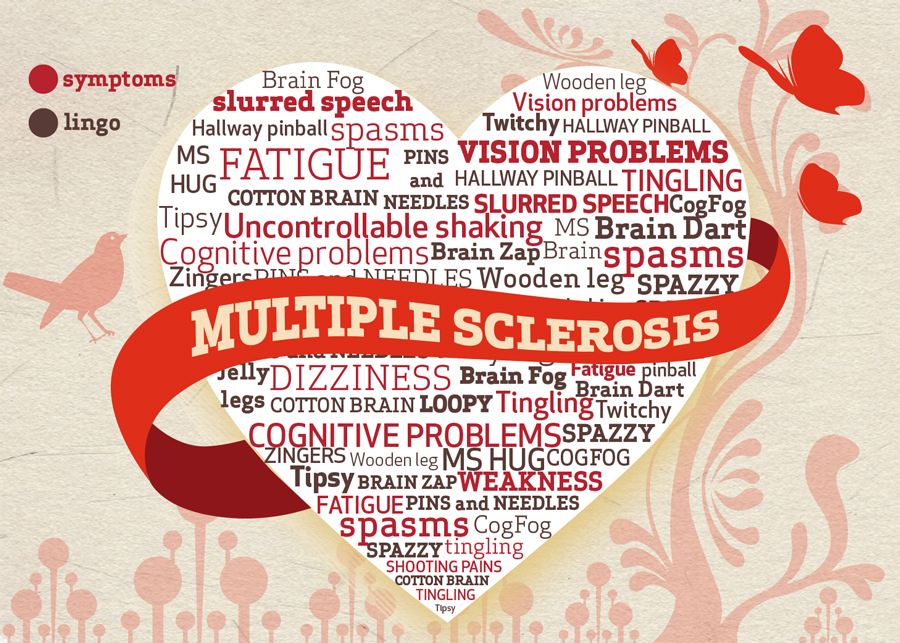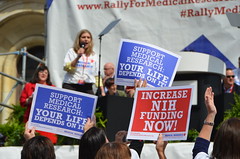It’s time once again for another edition of “Bits and Pieces”, a regular feature of this blog in which I present mostly MS related items that have found their way into my knapsack as I rummage around the Internet. But first, I’m going to try something brand spanking new. Drumroll please…
Okay, brace yourselves for the first ever Wheelchair Kamikaze interactive poll, where readers can register their responses to a few questions, and we can all view the results as they roll in. Creating this rather simple poll was much easier said than done, as the blog platform that I’m using doesn’t provide a handy a way to embed polls in blog posts, but with the help of the Google gods I figured it out (I hope).
The poll attempts to investigate the experiences of Tecfidera users, so, naturally, active participation in the poll is limited to those who have used or are currently using the new MS pill. I expect the results should be interesting for everybody with MS. A few months ago I put up a couple of blog posts summarizing some of the research I did on Tecfidera (click here and here), and the posts have received an incredible number of hits (over 30,000 and over 13,000, respectively), so I figure interest in the subject is high. I’m as curious as anybody to get a snapshot view of the Tecfidera patient experience.
Of course, the results of following poll will be completely unscientific, and are subject to the general whims and vagaries of the inter-webs. So, whatever the results, please take them for what they are, an amateurish attempt at patient pulse taking, hopefully interesting but far from definitive.
So, without any further fanfare, here’s the first ever Wheelchair Kamikaze reader poll. In the interest of trying to maintain some semblance of accuracy, please only answer the poll questions if you have actually taken Tecfidera, and if you are a Tecfidera user, please answer each question only once. No stuffing the ballot box, so to speak. Hopefully, the Google gods will not have steered me wrong, and this will actually work:
How would you characterize the side effects you’ve experienced as a result of taking Tecfidera?
Have Tecfidera’s side effects forced you to stop taking the drug?
(This question should only be answered by those who answered "no" to the previous question) How would you characterize any benefits you’ve felt since starting Tecfidera therapy?
All right, hopefully the poll did not cause this blog post to go kablooey, and we can continue on with our regular “Bits and Pieces” business. Here’s a collection of various MS related items that have caught my attention over the past month or so:
♦ There’s been a lot of news recently about the sometimes nefarious shenanigans engaged in by pharmaceutical companies. As long-time readers of this blog must be aware, I’m apt to go off on anti-Big Pharma tirades, but I promise I’ll try to control myself.
First up, an article from the New York Times about efforts currently underway to force pharmaceutical companies to release all of the research results related to the drugs they bring to market (click here). Hard as it is to believe, it’s an all too common practice in the medical research world for unfavorable data gleaned during drug trials to be suppressed and only positive info brought to light. Studies have shown that only about half of clinical trial results make their way to publication, and the vast majority of those results are positive. This phenomenon is known as “publication bias”, and is increasingly being recognized as a major flaw in our medical research model. In effect, it forces doctors to prescribe drugs without having full knowledge of the effects of those drugs, because unfavorable data is shielded from public view. The problem has become so widespread and troubling that the European Medicines Agency, which oversees drug approvals in the European Union, is considering a proposal that would force pharmaceutical companies to release all research results, positive and negative, related to drugs being submitted for approval.
While some drug companies are making a public show of voluntarily opening up all of their research results, it seems that others are not being quite so agreeable. As this article from the British newspaper The Guardian details (click here), a leaked memo reveals that powerful European and American pharmaceutical lobbying entities are attempting to mobilize patient advocacy groups (many of whom are reliant on pharmaceutical company funding) to raise fears that full disclosure of research results might be misinterpreted and lead to waves of health scares. Yes, the drug companies are trying to get patients groups to argue that withholding negative research data is actually in the public’s best interest. Here in New York City, we’d say that such efforts by Big Pharma take a humongous set of balls.
The roots of problems such as publication bias lie in the fact that we’ve evolved a medical research system that is increasingly dominated by the pharmaceutical companies. As this article from the Australian newspaper The Age nicely summarizes (click here), a joint review by American, European, and Australian researchers describes “how the enormous profit involved in making and selling drugs gave the industry power to influence every stage of the health system.”
Many decades ago, medical research was primarily the province of government and academic laboratories. Over the last 25 or so years, though, as the profit potential of pharmaceuticals has skyrocketed, more and more of our medical and drug research is being funded by the pharmaceutical companies themselves. Can anybody say “conflict of interest”? As an Australian doctor quoted in the above linked article states, ''Asking corporate sponsors to conduct pivotal trials on their own products is like asking a painter to judge their own painting to receive an award.'' Keep in mind, were not just talking any products here. Having painters judge their own work wouldn’t have the potential to cause physical harm to those who view their paintings, but allowing pharmaceutical companies to conduct research on their own products has already proven, on numerous occasions, to have potentially dire consequences on the patients taking their drugs.
Unfortunately, this situation is only likely to get worse, as economic and political constraints are leading governments to cut back on the already insufficient funding being devoted to medical research, as is detailed in this article (click here) about cutbacks to funding of the National Institutes of Health, the main government medical research facility in the United States. The NIH has long been at the forefront of innovating ground-breaking medical techniques and technology, but cutbacks to funding are effectively leaving the organization hamstrung, and are ceding more and more influence to Big Pharma.
Let me state that I don’t believe that the pharmaceutical companies are evil entities intent on doing harm to an unsuspecting public. They are only doing what corporations are designed to do, make as much money as possible. Most of the drugs they produce, including the MS disease modifying drugs, have increased the quality of life of millions of patients suffering from dread diseases. As public companies, however, the pharmaceutical giants are mandated by law to be beholden to their shareholders, not to the patients taking their products. While this has led to the production of many hugely profitable blockbuster drugs, it hasn’t led to all that many cures, as curing a disease pretty much eliminates any potential profit to be made from treating it, effectively violating a public corporation’s legal mandate. As I’ve said many times before on these pages, capitalism is a wonderful tool for creating wealth, but when married to medicine the results can be nauseating. Thankfully, there’s a pill for that.
♦ Okay, I’ll step back from the ledge, and refrain from engaging in a full throated rant. Let’s turn our attentions to more positive fare. Here’s a cool little interactive graphic, courtesy Healthline.com, which helps explain some of the common phrases thrown about in the MS patient lexicon. Just click on the graphic to to open it on the Healthline site, where you can mouse over the words to see definitions pop up. It's really kind of cool…
 |
♦ Here’s a video, presented by Everyday Health and Dr. Sanjay Gupta, about a weighted vest that helps MS patients suffering from lack of balance. Kind of an interesting concept with the potential to help many people, and the physical therapist featured in the video is none other than Dr. Stephen Kanter, who is the PT at the MS clinic at which I am a patient. As a matter of fact, I was just in the room that Dr. Kanter is being interviewed in last week. Can my life possibly get any more exciting?
♦ Oh goody, here’s another piece for my ongoing collection of asinine research studies. It’s a brilliant example of scientific exploration that delves into the mystifying question as to whether or not being told they are JC positive makes patients on Tysabri more anxious (click here). For those who aren’t aware, the JC virus is responsible for PML, the potentially deadly brain infection that has been linked to the MS drug Tysabri. Patients who are JC virus negative have a negligible chance of developing PML. JC positive patients, though, have a far greater risk, in some cases less than 1 in 100. Can you guess what the researchers found? Brace yourself for the shocking conclusion, because the investigators discovered that Tysabri patients who are JC positive are significantly more anxious about taking the drug then their JC negative counterparts! Who could have possibly guessed that patients that are far more likely to get a horrible and potentially deadly brain infection due to the medication they are taking would exhibit more anxiety about that medication than those whose risk is barely registrable?
Reading about this research led me to do a little thought experiment of my own. Given my fertile imagination, I assure you that going through with the actual experiment is entirely unnecessary. After much intense thought and contemplation, I’ve concluded that attaching a small guillotine to my gonads would make me significantly more anxious than not having to cope with the perpetual fear of having my family jewels chopped off any second. Of course, just to be sure, I’d like to run this experiment in real life on several hundred men, mostly pharmaceutical and insurance company executives. Where do I go to get my research grant?
♦ This last video has nothing at all to do with pharmaceutical companies, MS, or medicine whatsoever. It does feature a dog, an omelette and Bossa Nova, though, three of my very favorite things. I hope you get as big a kick out of it as I did…
Well, that’s it for this edition of Bits and Pieces. Thanks for reading Wheelchair Kamikaze!…



